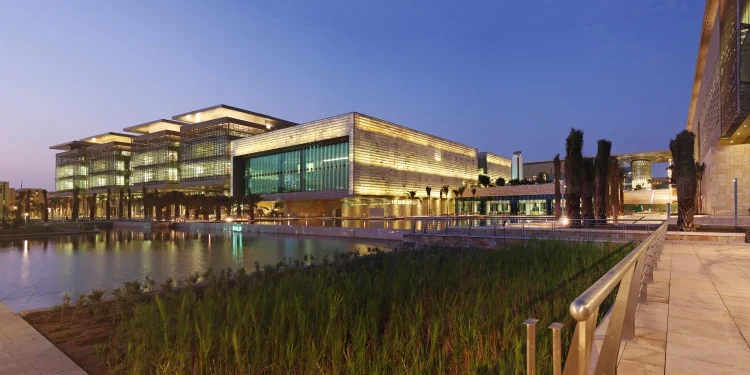Scientists at the King Abdullah University of Science and Technology (KAUST) have developed a biotechnology that transforms spoiled dairy and fruit waste into valuable industrial materials. The breakthrough supports Saudi Arabia’s circular economy goals by turning food waste into chemical and protein products with commercial applications.
From Waste to High-Value Chemicals
Led by Professor Pascal Saikaly, the KAUST research team has created a microbial conversion process that transforms expired food into short-chain and medium-chain carboxylic acids. These acids are used in industries ranging from plastics and cosmetics to biofuels and animal feed.

Short-chain acids are valued at around $300 per ton, while medium-chain acids can reach nearly ten times that value. The process requires no chemical additives and instead relies on the sugars already present in dairy and fruit waste to drive microbial fermentation.
In addition to producing industrial acids, the team has also found a way to recover casein protein from the same waste streams. This recovered protein can be used as a nutritional ingredient in aquaculture and poultry feed, reducing feed costs and waste simultaneously.
Pilot Projects and Industry Collaboration
KAUST has begun pilot testing the biotechnology with several dairy and beverage producers in Saudi Arabia. The companies provide more than 500 litres of waste each week for conversion.
The pilot is designed to prove that the system can be integrated directly into factory operations, allowing manufacturers to process their waste on-site. This approach reduces transport costs, emissions, and landfill dependency while producing marketable by-products.
Aligning Science with National Sustainability Goals
Saudi Arabia aims to divert 90 percent of its waste from landfills by 2040. The KAUST technology aligns with this target by converting organic waste into commercially valuable outputs rather than disposing of it.
Food waste is a major contributor to methane emissions, and KAUST’s innovation offers a dual solution, lowering environmental impact while adding industrial value. It demonstrates how biotechnology can help achieve economic and environmental goals in tandem.
Scaling the Innovation
Challenges remain in moving from pilot to commercial scale. Large-scale adoption will depend on market demand, cost-efficiency, and the ability to maintain product quality. Success will also rely on building industry partnerships and ensuring regulatory compliance for the materials produced.
If commercialised, this model could serve as a template for food waste valorisation worldwide, transforming how food and beverage manufacturers manage excess products.














